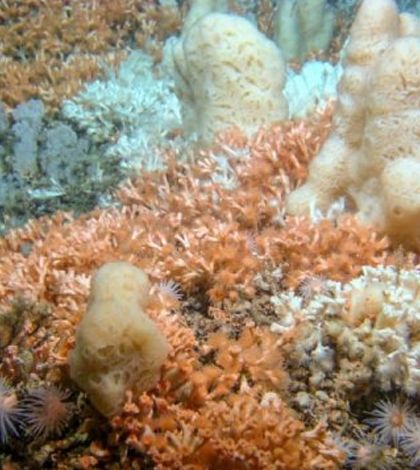Remotely Operated Vehicles Safely Study Coldwater Corals

Researchers used remotely operated vehicles to study coldwater coral reefs. (Courtesy GEOMAR ROV Phoca team and Sascha Flögel)
Scientists must be careful when they gather data from fragile ecosystems: The information they collect must be gathered with minimal interference to the ecosystem – otherwise the more they learn about it, the more they destroy it.
Such was the dilemma for researchers delving into the secrets of deep, coldwater coral reefs off the coasts of northern Europe, according to a press release from the University of Southern Denmark. They solved the dilemma by not taking fragile corals from their environment for lab analysis. Instead, they took the lab to the coral reefs.
The researchers used remotely operated vehicles about the size of office desks to determine where to set up the coral reef “lab.” The ROVs then collected samples from the reef system autonomously.
Using a technique called aquatic eddy covariance, researchers were able to determine the oxygen levels of the reefs plus high-frequency water flow, giving them estimates of oxygen uptake. Researchers hope the information they collect will help determine how much deep, coldwater reefs are contributing to global carbon levels.
Top image: Researchers used remotely operated vehicles to study coldwater coral reefs. (Courtesy GEOMAR ROV Phoca team and Sascha Flögel)




0 comments